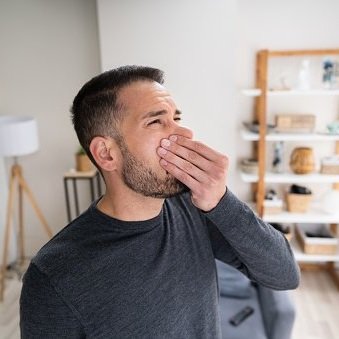Your Quick Guide to Decoding HVAC Odors
We rely on our HVAC system to make our homes comfortable. So if the air conditioning suddenly expels an odd odor, that comfort can quickly disappear. Finding the source of that odor and understanding what it means can restore that comfort. Also, it can save you from potential health and safety problems.
Let's discuss the most common air conditioning odors and their meanings.
Common air conditioning smells
It is a warning sign when an air conditioner generates weird and unfamiliar smells. At the least, it's probably a health hazard. In worse-case scenarios, it might be toxic and require urgent attention.
Here are the top six odors and what you can do about them:
Burning or electrical odors
Electrical odors are prevalent in air conditioners. It might imply a mechanical issue with the HVAC system. The cause of those problems can be the compressor, electrical component, fan, or wiring issues. Since they are all made from mechanical and chemical ingredients, being exposed to smells for a while can be very problematic.
Smelling a burning odor when turning on an AC is nothing to worry about, especially if you haven't used it recently. However, homeowners should contact a professional if the smell doesn't dissipate in 20 to 30 minutes.
Rotten egg smells
If there is no rotten egg hiding in the AC or anywhere else in the house, the smell of sulfur or rotten eggs can indicate a gas leak. It's most likely a natural gas leak that has made its way into the ventilation systems. Homeowners should not take this kind of odor lightly.
If a rotten egg smell is present, the best thing to do is turn off the gas supply, evacuate from the house, and call for help.
Gunpowder smells
A gunpowder smell can indicate a mechanical problem with the AC due to a faulty circuit board or fan. These smells can be very harmful to the respiratory system. It is best to clean and check the AC thoroughly before turning it on.
Exhaust fumes
HVAC systems don't need to be powered by gas to smell exhaust fumes. The odors may represent fluid leaks in the AC or heating systems. These fluids are hazardous to a person's health because they can release toxic odors into the air.
Chemical odors
Chemical smells can originate from many different sources. Open chemical containers are the most common. They can pick up fumes and force them through the house via the vents. There are also fluids in the AC unit that can cause odd odors. But it's essential to watch out for ozone smells and freon leaks, as they are pretty unhealthy.
Ozone smells can come from the AC unit itself, while freon chemicals exchange the hot air from the house with cool air. It's harmful to residents if not appropriately contained.
Mold or musty smells
One of the most familiar smells from the HVAC system is mold and mildew. When the AC is working, many condensations are happening in it. This can leak and cause mold around the house, hence the odd smells. Mold can increase respiratory problems.
When should you call for professional help?
The goal should be to free your house from any odd smells. Some scents like rotten eggs and chemicals can be life-threatening. So if your efforts didn't work and the smell is still present in the house, calling in a professional HVAC contractor is a must.
Stud Air Conditioning is a full-service installation, maintenance, and repair HVAC company serving Broward, Miami-Dade, West Palm Beach, and Port St. Lucie counties. Call us when you need help with your heating or cooling needs at (954)324-2905. We can help!

